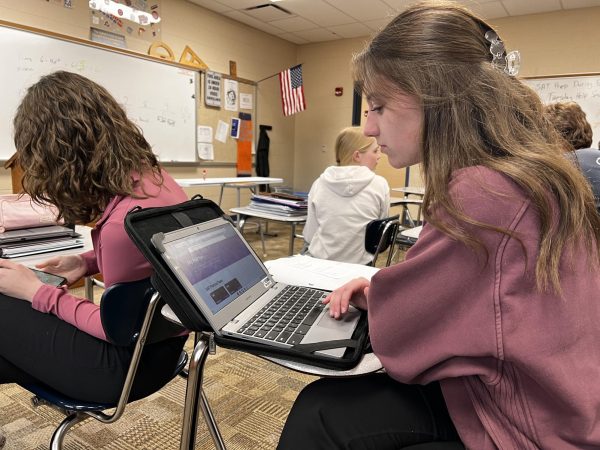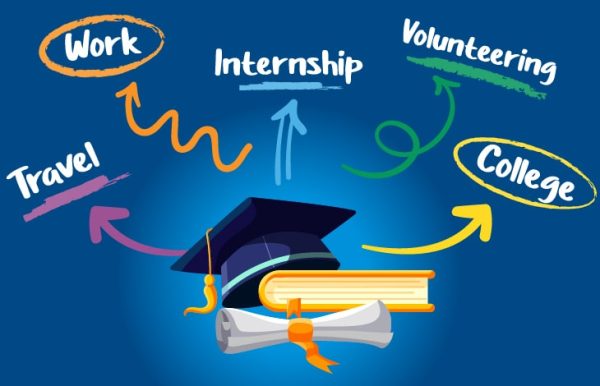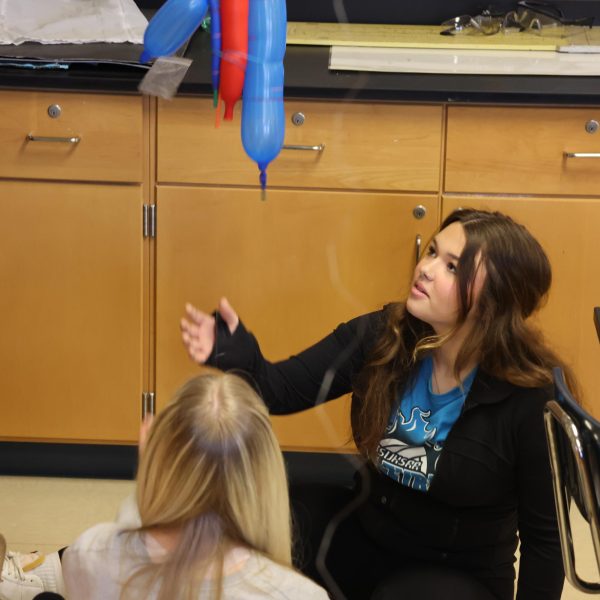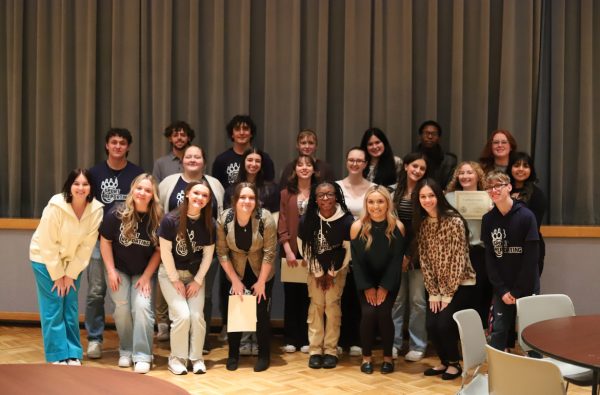Never Refuse to Reuse!
December 2, 2019
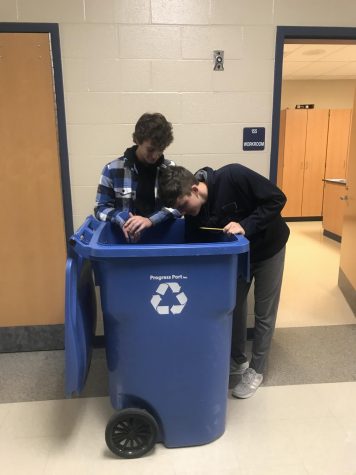
Bryce Anderson (11) and Matt Wallace (11) demonstrate the importance of recycling by going around the school collecting papers from the classroom weekly.
Do you know how much trash is in our oceans today? 14 billion pounds. Yes, 14 BILLION. An estimated 14 billion pounds of trash, most of it being plastic, is dumped into oceans every year. Not only are there 14 billion pounds of trash and recyclables in the oceans, landfills are filling up fast. The United States produces about 230 million tons of trash: that’s about 4.6 pounds per person a day. The National Academy of Science estimates about 1.5 million pounds of trash is dumped into the ocean every hour. More than 85% of this trash comes from the world’s merchant shipping fleet in the form of cargo-associated waste.
Recycling not only helps ecosystems and wildlife, but it also helps to conserve natural resources. Some of the world’s natural resources are scarce and very short in supply. Most materials can be recycled, including paper, plastic, wood, metals, glasses, and even cigarette butts. Cigarette butts are made up of acetate cellulose, which means, in simpler terms, it’s plastic. Plastic is not biodegradable. A company in New Jersey, TerraCycle, decided to try to solve that problem and is now recycling cigarette waste. They accept most all of the parts of the cigarettes except the paperboard box, which can be recycled regularly.
Bryce Anderson (11) says his family tries to recycle every two weeks. “We take anything from cans to boxes. It is important to recycle because it is all things that can be reused.” Anderson believes the biggest issue he sees when people do not recycle is trash being left all over the place.
Recycling is easy no matter where you live. The easiest way to get started is by reducing your own use of single-use plastics. These plastics include plastic bags, bottles, straws, cups, party utensils, dry-cleaning bags, take-out containers, and any other plastic items you would only use once. Try alternatives to these single-use plastics by using reusable bags, water bottles, metal utensils, and reusable containers. Instead of throwing out plastic bags, save them in your home in case you need them again later on.
Matt Wallace (11) also recycles about once a month. “We recycle metal cans, paper, and magazines. Recycling keeps the landfills less packed.” Wallace said the biggest issue is it all can be reused but instead, it is ending up in landfills.
It is also important to recycle properly. If you have a plastic item with you in public, when you are done using it, make sure you place the item in a blue recycling bin when you are done, instead of the trash. This can help prevent plastic from getting into the ocean.
Spreading the word about recycling can help prevent plastic waste from entering the oceans as well. Telling your friends and family about single-use plastics, and making sure they understand the importance of recycling can potentially help. Help your friends and family stay informed on issues with recycling, support bans, and support organizations addressing plastic pollution.
Signing up with a local recycling company can also reduce the amount of recyclables ending up in our oceans. The United States has over 633 recycling facilities that can clean, sort, and bale 100,000 tons of recyclables, a day.
Do yourself and the environment a favor: start recycling today.











